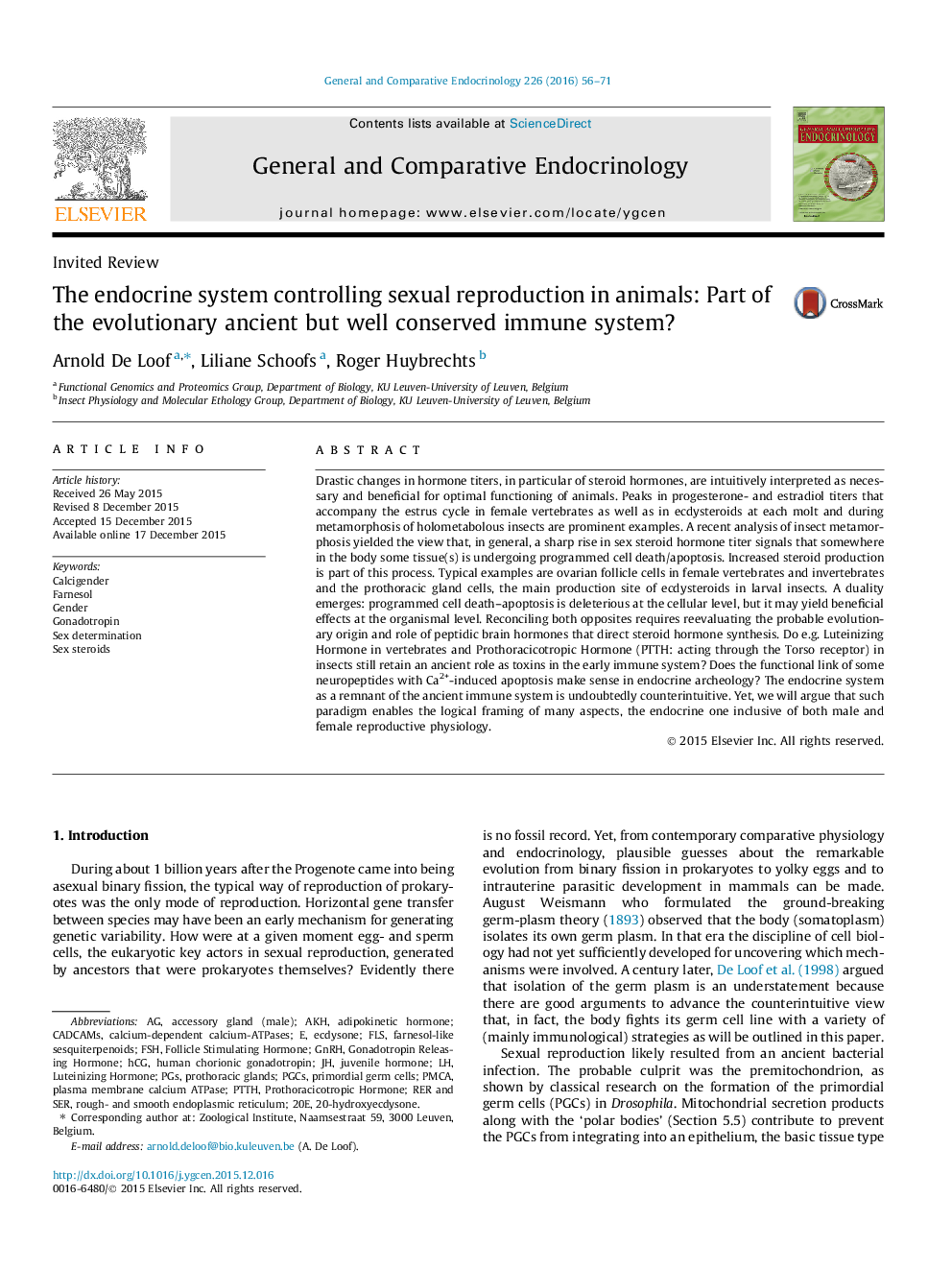| کد مقاله | کد نشریه | سال انتشار | مقاله انگلیسی | نسخه تمام متن |
|---|---|---|---|---|
| 2799826 | 1568880 | 2016 | 16 صفحه PDF | دانلود رایگان |
• Sexual reproduction likely resulted from an ancient bacterial infection.
• The germ cell line behaves as if it is immunologically alien to the somatoplasm.
• Several aspects of reproductive physiology are immune/defense reactions.
• Vitellogenins, usually induced by sex steroids have agglutinin–lectin properties.
• Sex steroid hormone peaks signal that some tissues are undergoing apoptosis.
Drastic changes in hormone titers, in particular of steroid hormones, are intuitively interpreted as necessary and beneficial for optimal functioning of animals. Peaks in progesterone- and estradiol titers that accompany the estrus cycle in female vertebrates as well as in ecdysteroids at each molt and during metamorphosis of holometabolous insects are prominent examples. A recent analysis of insect metamorphosis yielded the view that, in general, a sharp rise in sex steroid hormone titer signals that somewhere in the body some tissue(s) is undergoing programmed cell death/apoptosis. Increased steroid production is part of this process. Typical examples are ovarian follicle cells in female vertebrates and invertebrates and the prothoracic gland cells, the main production site of ecdysteroids in larval insects. A duality emerges: programmed cell death–apoptosis is deleterious at the cellular level, but it may yield beneficial effects at the organismal level. Reconciling both opposites requires reevaluating the probable evolutionary origin and role of peptidic brain hormones that direct steroid hormone synthesis. Do e.g. Luteinizing Hormone in vertebrates and Prothoracicotropic Hormone (PTTH: acting through the Torso receptor) in insects still retain an ancient role as toxins in the early immune system? Does the functional link of some neuropeptides with Ca2+-induced apoptosis make sense in endocrine archeology? The endocrine system as a remnant of the ancient immune system is undoubtedly counterintuitive. Yet, we will argue that such paradigm enables the logical framing of many aspects, the endocrine one inclusive of both male and female reproductive physiology.
Figure optionsDownload as PowerPoint slide
Journal: General and Comparative Endocrinology - Volume 226, 15 January 2016, Pages 56–71
